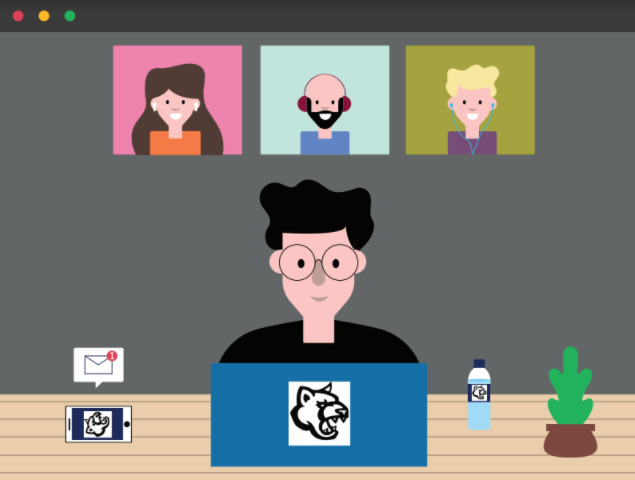Lack of social interactions can lead to mental health issues
Students miss out on building relationships with classmates because of online classes.
November 9, 2020
Effective communication and human interaction is essential to growth and, quite frankly, to being human.
The COVID-19 pandemic has taken away what we know to be normal and shaped it into something completely foreign for all of us. Making eye contact with someone across the room and cracking a smile or shaking a stranger’s hand without being afraid is something I never thought I would miss, simply because it’s been taken for granted in the past.
What we know as normal is being altered in today’s world and has affected the student life experience.
I asked CSUSM students what they thought about this “new normal” and how it affects the future of social interactions on campus.
CSUSM student Emily Knoff said, “Half of the appeal of college is making connections with peers, and that is obviously lacking this semester. I don’t necessarily think that students will interact differently once we are back on campus.”
“… Zoom makes it nearly impossible to form relationships with classmates and professors. There’s just no way to have those types of conversations via Zoom,” said Knoff.
Having classes via Zoom takes away from the real-life experience of sitting next to someone on the first day of class, knowing that you’ll have to see this person for the rest of the semester.
With Zoom, students have the option to not share their real-life self, making it even less human-like, preventing students from building relationships with each other.
Another student, Lezti Inaliel, also shared her thoughts on what it’s like being a student while in a pandemic.
“I for sure miss interacting with other students. I feel like Zoom classes make it hard especially because no one wants to do it. The cameras are off, we don’t pay attention 100 percent and it feels more like a chore than learning,” said Inaliel. “I also feel like we haven’t learned anything.”
Inaliel went on to explain how our lack of human contact on campus is going to lead us to become more willing to speak up and socialize with each other once things are back to normal.
“Once we return to campus I feel like people are gonna be more willing to say hi or be kind to people since we’ve been starved of it for so long,” she said.
It’s one thing to know that human contact is an essential part of living, and it’s another to truly be deprived of this human need and come to an understanding that we should not take it for granted.
Who knew that we’d miss letting someone borrow a pencil?
Lack of social interactions can potentially lead to mental health problems.
Many articles and studies have been done and particularly analyzed this year, concluding that human isolation is becoming the new norm.

One article published by American Psychological Association emphasizes the importance of raising awareness on the “importance of self-care to reduce feelings of isolation and anxiety” which is “paramount to promote well-being for everyone.”
Not only is it important for students to have that human interaction (and self-care) to reduce feelings of isolation and anxiety, but it’s important for our overall well-being and mental health.
So what will it be like when we can finally go back on campus? Will it ever be the same way it used to? Will we adapt to this “new normal”? Will social interaction between students ever be the same?
I think if we keep these discussions open and attempt to build relationships via technology, we can potentially adapt and overcome this hiccup in history.


